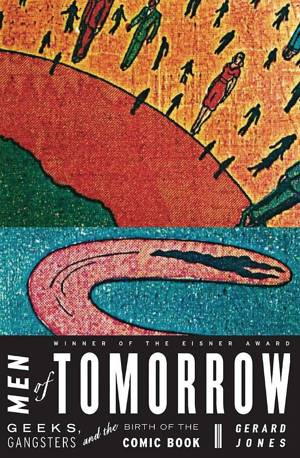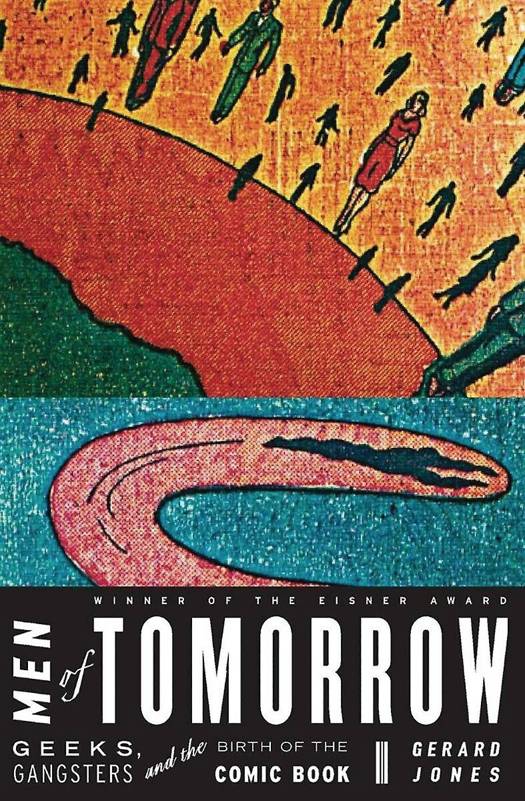
- Afhalen na 1 uur in een winkel met voorraad
- Gratis thuislevering in België vanaf € 30
- Ruim aanbod met 7 miljoen producten
- Afhalen na 1 uur in een winkel met voorraad
- Gratis thuislevering in België vanaf € 30
- Ruim aanbod met 7 miljoen producten
Zoeken
€ 42,45
+ 84 punten
Omschrijving
Animated by the stories of some of the last century's most charismatic and conniving artists, writers, and businessmen, Men of Tomorrow brilliantly demonstrates how the creators of the superheroes gained their cultural power and established a crucial place in the modern imagination. "This history of the birth of superhero comics highlights three pivotal figures. The story begins early in the last century, on the Lower East Side, where Harry Donenfeld rises from the streets to become the king of the 'smooshes'-soft-core magazines with titles like French Humor and Hot Tales. Later, two high school friends in Cleveland, Joe Shuster and Jerry Siegel, become avid fans of 'scientifiction, ' the new kind of literature promoted by their favorite pulp magazines. The disparate worlds of the wise guy and the geeks collide in 1938, and the result is Action Comics #1, the debut of Superman. For Donenfeld, the comics were a way to sidestep the censors. For Shuster and Siegel, they were both a calling and an eventual source of misery: the pair waged a lifelong campaign for credit and appropriate compensation." -The New Yorker
Specificaties
Betrokkenen
- Auteur(s):
- Uitgeverij:
Inhoud
- Aantal bladzijden:
- 416
- Taal:
- Engels
Eigenschappen
- Productcode (EAN):
- 9780465036578
- Verschijningsdatum:
- 11/10/2005
- Uitvoering:
- Paperback
- Formaat:
- Trade paperback (VS)
- Afmetingen:
- 149 mm x 205 mm
- Gewicht:
- 426 g

Alleen bij Standaard Boekhandel
+ 84 punten op je klantenkaart van Standaard Boekhandel
Beoordelingen
We publiceren alleen reviews die voldoen aan de voorwaarden voor reviews. Bekijk onze voorwaarden voor reviews.











